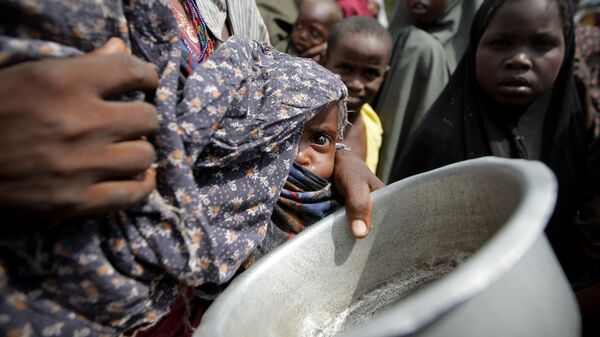For years, UK aid money has increasingly been going into dubious private sector development projects and into the pockets of wealthy western consultants, according to a campaign group Global Justice Now, ahead of a parliamentary debate on aid spending.
Here's our contribution to the #UKaiddebate — 0.7% is a small contribution towards justice & equalityhttps://t.co/K8sO3y71zG
— Global Justice Now (@GlobalJusticeUK) 13 June 2016
The group released a short briefing ahead of the debate, Monday evening (June 13) — "0.7% on aid: a small contribution towards justice and equality," which argues that:
"…aid is not reaching those who need it, but ends up furthering the business interests and boosting the profits of multinational companies."
Although the debate amounted to just an exchange of views, the House of Commons heard concerns that the foreign aid budget was finding its way into the hands of the big four accountancy firms in the world and many private companies, globally.
#Labour stands not just for commitment to 0.7 but for a continued commitment to scrutiny and accountability #ProudOfAid #UKAidDebate
— Diane Abbott MP (@HackneyAbbott) 13 June 2016
Labour Party opposition development spokeswoman Diane Abbott said: "Aid spending is dwarfed by the financial flows out of countries in Africa. Every year, the continent receives around US$30 billion in aid, but it loses US$192 billion-more than six times as much as it receives in aid-in debt repayments, lost tax revenue, tax transfers, multinational profits and other financial flows.
"I am also concerned about DFID's use of the big four accountants, which I believe to be contrary to sustainable development. PricewaterhouseCoopers, for example, is involved in industrial-scale marketing of tax avoidance schemes for corporations in the global south. I have other concerns about how the Government are spending aid to subsidize the fossil fuel industry and on deportation deals and building prisons," she said.
Privatization Schemes
Polly Jones, the head of policy and campaigns at Global Justice Now told Sputnik:
"UK aid is now being used to help privatize the electricity system in Nigeria and has ended up helping to finance luxury housing. The government's aid strategy openly talks about aid being 'in the national interest' and discusses handing over aid money to the Ministry of Defense.
"These are symptoms of an aid program that is going in the wrong direction. The problem is not the risk of UK aid money getting into the hands of corrupt elites abroad, it is that aid is increasingly being diverted away from tackling poverty and into the pockets of elite consultancy firms. US$850 million has been spent on an African food program which has just been slammed by the EU for benefiting big business and not tackling poverty for small farmers," Jones told Sputnik.
"After the Second World War, redistribution of wealth allowed us to build a world class welfare state which transformed life in this country. Redistribution of wealth today, can allow other countries to build the next generation of national health services too.
"This isn't charity — it's living in a civilized world."





